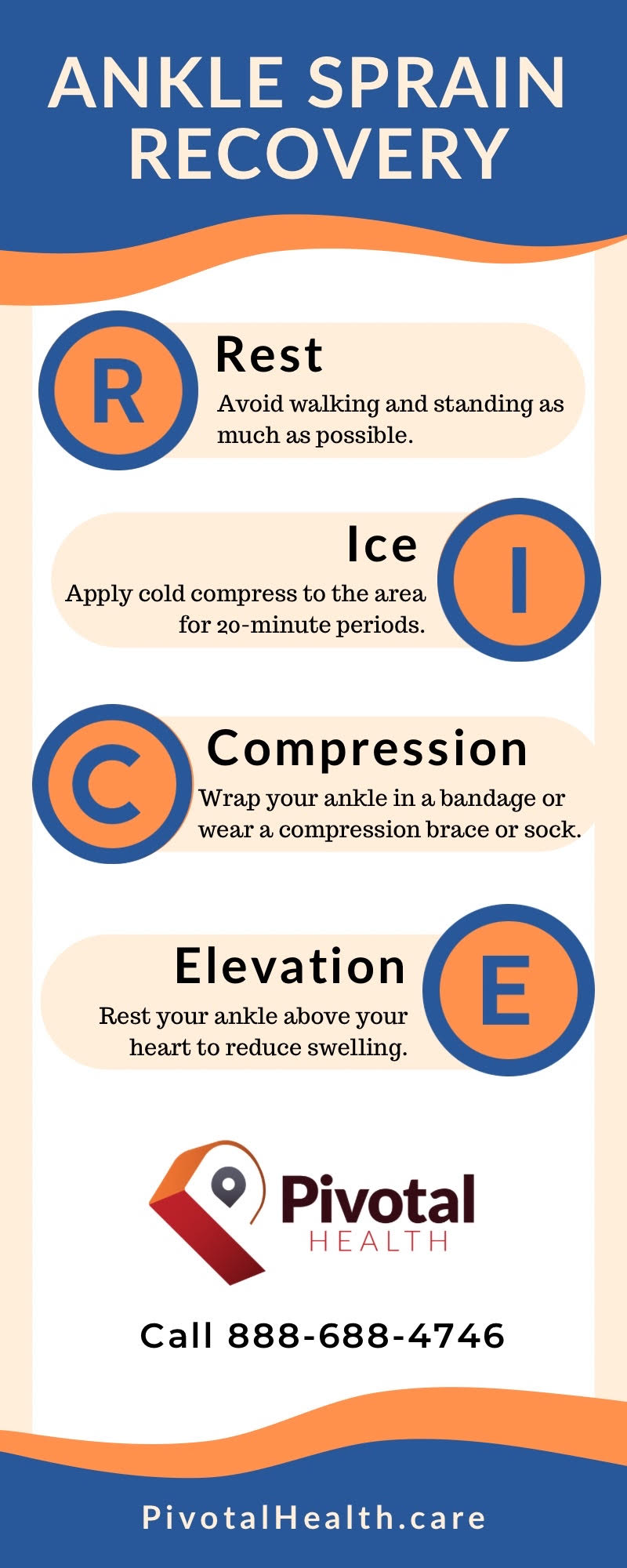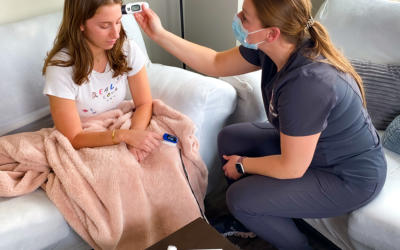When should I go to the emergency room for a sprained ankle?
Around one million ankle injuries occur each year in the U.S. — about 85% of them are sprains. While sprains can occur in various parts of the body, the ankle is the most common site for sprains. Ankle sprains can be painful and inconvenient but usually are not serious. It is important to know how to treat ankle sprains so they may heal safely, and so you may resume your normal activities as soon as possible.
What is an ankle sprain?
An ankle sprain is a tear or stretch of one or more ligaments that hold your ankle in place. Ligaments are fibrous connective tissues that hold joints together to keep them stable. Providers classify sprains into three grades:
- Mild — Ligaments are stretched but not torn
- Moderate — Ligaments are partially torn
- Severe — One or more ligaments are totally torn
What causes ankle sprains?
Ankle sprains are caused by twisting, bending, or falling: actions that force your ankle into unnatural positions. Common causes include:
- Stepping on an uneven surface, like into a hole
- Jumping and then landing awkwardly, sometimes on another person
- Stumbling on a stair or curb
- Tripping or slipping
- Wearing unstable shoes like high heels
Symptoms of an ankle sprain
- Pain: Your ankle may hurt to move and may be sore to the touch
- Swelling: Your ankle may increase in size and you might see an imprint when you touch the area
- Bruising
- Difficulty walking
- Limited mobility
Is my ankle sprained or broken?
Ankle sprains and ankle fractures display many of the same symptoms and a medical exam might be necessary to evaluate your condition. Your ankle may be fractured if you are experiencing any of the following symptoms:
- You cannot bear any weight on your ankle for days after the injury
- You have significant swelling and bruising
- Your ankle is visibly deformed
- Your ankle is tender to the touch
How can you treat your ankle sprain at home?
- Follow the RICE Protocol:

- Take over-the-counter medications, such as acetaminophen to reduce pain, or non-steroidal anti-inflammatory drugs (NSAIDs, such as ibuprofen) to reduce pain and inflammation
When should you seek emergency or urgent care for your ankle sprain?
You should seek medical attention if:
- You are unable to walk
- Your pain is extreme and doesn’t get better with ice or over-the-counter medication
How will your ER or urgent care clinician diagnose your ankle sprain?
- Physical exam: Your provider will examine your foot and ankle, testing range of motion and noting spots that are tender to the touch
- Imaging: Your provider may order an X-ray to spot fractures, or order more advanced imaging, such as a CT or MRI
How will your ER or urgent care clinician treat your ankle sprain?
Your provider will recommend the home care measures listed above (R.I.C.E., over-the-counter pain medication). In addition, they may:
- Provide you with an ankle brace or bandage
- Prescribe physical therapy
- Offer you prescription pain medication
What are the risks of not treating your ankle injury?
Letting your ankle sprain or fracture go untreated can lead to the following:
- Permanent ankle instability
- Increased risk of reinjuring your ankle
- Leg weakness
- Incomplete or displaced healing of an untreated fracture
How can you prevent an ankle sprain?
There are steps you can take to help avoid injuries. They include:
- Wear comfortable, well-fitting shoes and boots that are appropriate for your activity. Avoid high heels and slippery soles.
- Avoid walking on uneven ground, especially avoid holes.
- Remove tripping hazards and obstacles from your home and yard.
- Keep your ankles strong and flexible with exercises. Recommended exercises include stretching, range of motion exercises such as ankle circles, and balancing on one foot at a time. Ask your provider or a physical therapist for more specific exercises and for online exercise resources.
Help for Ankle Injuries From Pivotal Health
Ankle sprains and fractures can significantly impact your daily activities, so connect with Pivotal Health to discuss a visit with a provider to diagnose and treat your ankle injury. Our expert triage support and clinicians will help you determine if you need emergency care or can be seen in the comfort of your home, on your own schedule, by a licensed Pivotal Health provider.
Pivotal Health clinicians evaluate ankle sprains and fractures, can order X-rays to be performed right in the home (if appropriate), prescribe medications, order physical therapy, and create a treatment plan for you. All Pivotal Health clinician visits feature follow-up consultation so you can feel confident that you’re in experienced, caring hands and on your way to healing.












